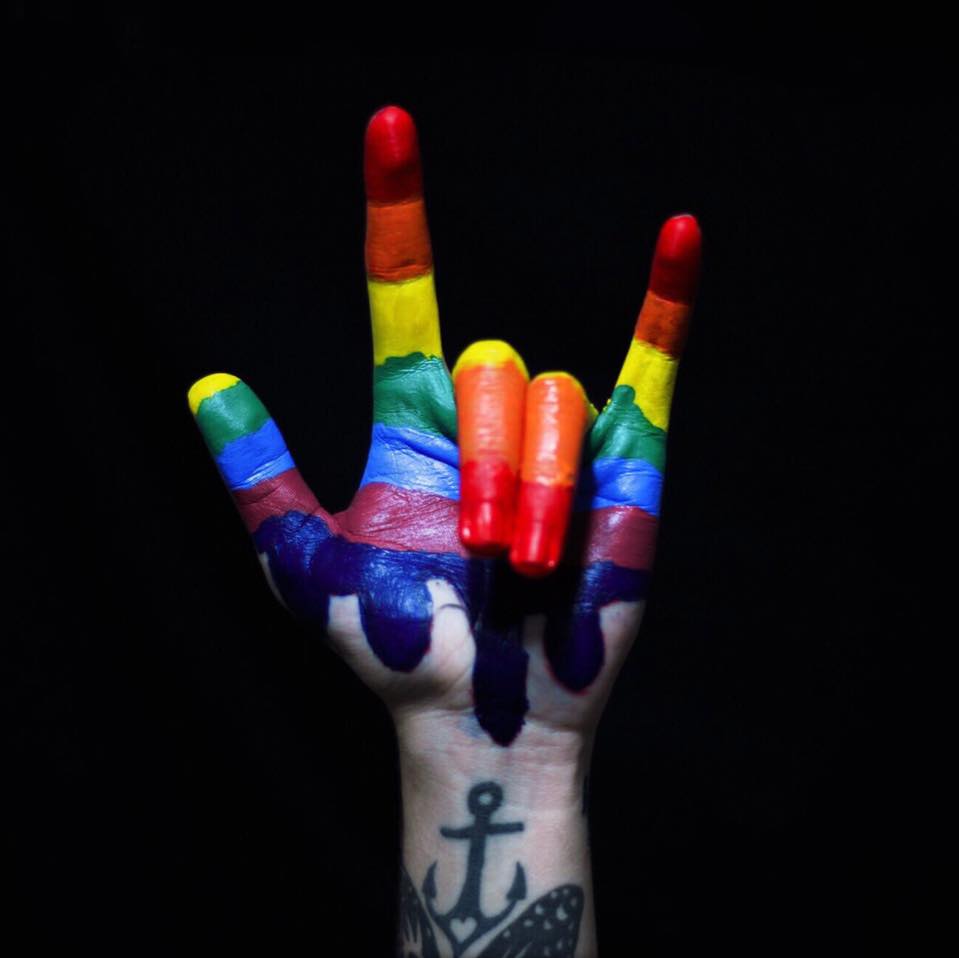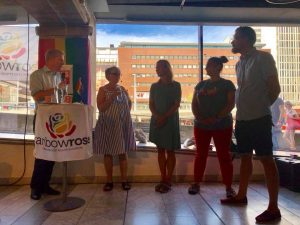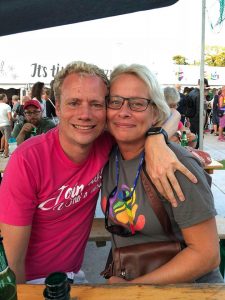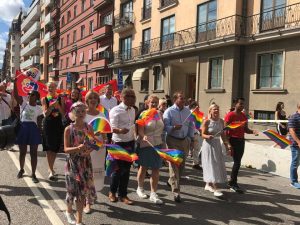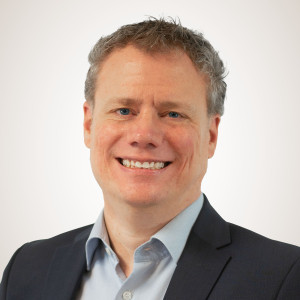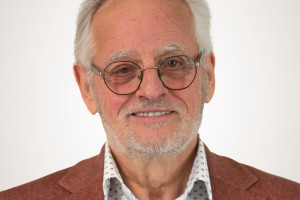Voor Nederlands klik hier / for Dutch click here
During the first week of August the Europride was taking place in Stockholm. A week full of festivals all over the city; art, theatre, concerts and debating. One of the main events was the Human Rights Conference in the Kultuurhuset of the city. A large number of people participated in discussions about a broad number of human right’s issues, mostly concerning LGBTI (lesbian, gay, bisexual, transgender and intersex) people.
At request of the Swedish HBT-Socialdemokrater and Rainbow Rose I had the honour to moderate the discussion about LGBTI rights in Turkey and the Balkan. The topic raised a constructive debate, thanks to the panel which was a mixed of people with different background and profound knowledge concerning the topic. The panel members were Anna Sundström, Secretary General Olof Palmes International Center, Sedef Cakmak, President of Rainbow Rose, Jonas Gunnarsson, former rapporteur on LGBTI the council of Europe and Julie Ward, Member of European Parliament for Labour.
We first discussed the current situation in the region. Julie Ward emphasised the fact that a strong negative trend has set in, where the situation for LGBTI people is deteriorating. Human rights in general are under pressure and eroding at a rapid pace. Sedef, who is a openly outed Turkish politician and LGBTI activist, made very clear that people and activists in Turkey and the Balkan are getting desperate. They need to get solidarity and support to get renewed energy to fight against the injustice, hate and negative trend. The panel agreed with Anna that not only human rights organisations, but also individuals like each of us, must play a role to counter the negative trend that is now happening. Jonas pointed out that important changes for Europe often have the Balkan area as starting ground: “So there the future of LGBTI rights is determined. It is of utmost importance that we take action”. Julie said: “We need to dare to stand up for human rights”.
Then the panel talked about the steps that can be taken to improve the situation. Jonas indicated that there are quite a number of international laws and treaties that can support the strengthening of human rights in Turkey and the Balkans. This means that on governmental level these countries must be pointed on their obligations, but it also enables the local human rights organisations to take action. For this they will need support. Anna Sundström calls upon western European LGBTI rights organisations to tighten the bonds with their sister organisations that are having a harsh time. She said: “At the time that Eastern European countries entered the EU the bond with human rights organisations has loosened. However; we now see that this was wrong. The fact that these countries now are part of the EU does not automatically guarantee that human rights improve. We need to tighten these bonds.”
Julie and Sedef added to this that it is important to keep in mind that LGBTI rights are human rights. Different groups can work together to improve the situation for all. For example the gender equality movement can greatly help the LGBTI movement to obtain more platform. Julie is working on this from her position in the European Parliament. She explained that educating the younger generation is crucial: “After the recent wars on the Balkan the same old men stayed in power. The new generation is now getting ready to take over and they have an entire different view on the world and on human rights. We need to make sure that youngsters are educated”. Sedef supported these views and expects that all of the steps mentioned will benefit the human rights situation and will help the activists in these countries forward. She also points out that we should not underestimate the fact that the fight for justice is on two fronts; improving the current situation and also counteraction against the negative trend.
There is plenty to do on different levels. The good thing is, this can be done if we dare to act.
I am sure the discussion about LGBTI rights in Turkey and the Balkan has inspired the large number of people in the audience. We called upon them to take the message with them to their local politicians and organisations. Also, as a person to dare to stand up for human rights and show support. As Anna said, we all can play a role to improve freedom and human rights around the globe.
Personally I got a strong sense of urgency and great motivation from the panel and decided to visit a Pride in a less tolerant place in Europe next year to let the local activists know that they are not alone.
Richard van de Burgt

